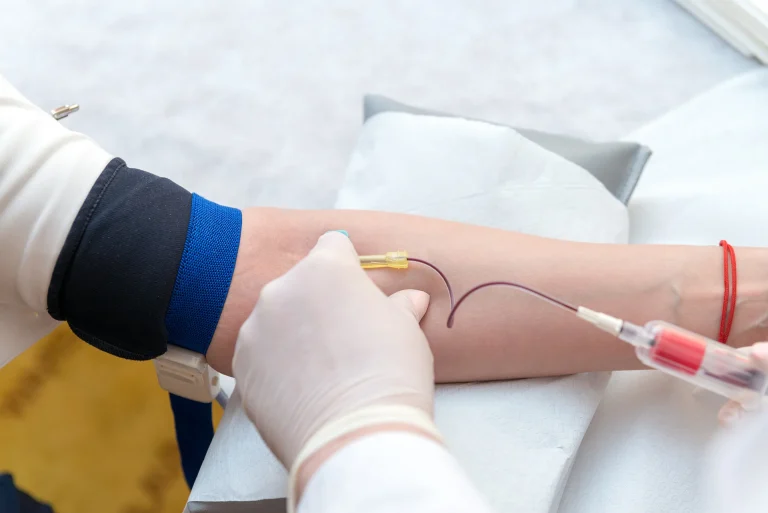Why Did Your Doctor Order a BUN Test?
When a person hears their doctor order a BUN test, they might be worried. Doctors use this test to determine how much urea nitrogen is present in the blood. This test determines how well the kidneys are functioning and whether the liver is experiencing problems.
Blood Urea Nitrogen
Many people don’t know that blood is rich in nitrogen. The liver creates this waste product when it breaks down specific proteins found in the food that an individual consumes. The urea nitrogen moves through the blood to the kidneys, where it is then filtered out. A small amount remains present in the kidneys while the rest leaves the body when the person urinates.
If the kidneys aren’t functioning correctly, excessive BUN is left behind. A blood test can determine the amount of urea nitrogen remaining in the blood. When the level is outside the normal range, the doctor must determine why, as it could indicate a problem with the liver or kidneys. They can explain the process of understanding bun levels and why this test is important, so patients are informed about their health.
When is a BUN Test Ordered?
Doctors don’t always order a BUN test. Although it may be included in a routine checkup, doctors may also order this test when they suspect there is a problem with the kidneys or liver. They use this test to measure BUN levels before starting a medication or treatment and again as the treatment progresses to note any changes. Individuals who are hospitalized may also receive this test, and it is often ordered when a doctor is conducting a basic metabolic panel or a comprehensive metabolic panel blood test. Individuals with a family history of kidney disease might also find that their doctor regularly orders this test.
Individuals who are at high risk of kidney or liver issues will find they have to undergo this test more frequently. These individuals include those with heart disease, diabetes, or high blood pressure. However, a doctor might also order this test based on symptoms a patient is reporting.
A change in urination could lead to the test being ordered. The urine may be discolored, bloody, or foamy, and the person may urinate more or less frequently than usual. Any pain during urination could lead to a BUN test, and individuals who have restless legs while sleeping might find that the doctor wishes to check their blood for high BUN levels. Individuals who are regularly fatigued and those experiencing pain around the kidneys might undergo this test. Additionally, anyone who has swelling in the limbs, face, or abdomen may need this test to ensure their liver and kidneys are working correctly.
read more : Building Dreams with Vision Values and Heart the Story of Timur Turlov
Preparing for the Test
The doctor must be aware of any medications a patient is taking before conducting this test, as they may affect the test result. The patient may need to stop taking the drug for a short period to ensure accurate test results. A person does not need to fast if they are only getting a BUN test. However, if other tests are being conducted, the doctor may tell them they are unable to eat or drink for a specified period before the testing. This test is performed just as any other blood test is handled.
Test Results
BUN levels vary by a person’s age and sex. Normal levels typically range from 7 to 20 mg per deciliter. When a person’s test results fall outside of this range, the doctor will need to determine why. A high BUN level could indicate a problem with the kidneys, but it could also be the result of dehydration, stress, certain medications, or a high-protein diet. Individuals who have had a heart attack, those with gastrointestinal bleeding, and anyone with a blockage in their urinary tract interfering with normal urination could have a high BUN level.
Most people never have a low BUN level. However, individuals with a small body or low muscle mass may also have a low BUN level, which indicates that the person is suffering from malnutrition, overhydration, a diet lacking sufficient protein, or liver disease.
Kidney Function Tests
If the doctor suspects the kidneys are not functioning correctly, they will request additional tests. A creatinine test is often recommended. Creatinine is another waste product that the kidneys must filter. The doctor would like to see a person’s BUN levels in comparison with their creatine levels to ensure the substances are correctly removed from the body.
Doctors would like to see a BUN to creatinine ratio between 10:1 and 20:1. If this ratio falls outside of that range, the kidneys may not be working correctly. Dehydration, congestive heart failure, and gastrointestinal bleeding could be leading to these abnormally high levels. A low ratio could indicate malnutrition or liver disease.
The glomerular filtration rate test is another way doctors can examine how the kidneys are functioning. This test examines the way in which the kidneys filter waste from the blood. A low number indicates the kidneys are not functioning and the patient is in kidney failure. They will need dialysis to help remove waste or fluids from the body or a kidney transplant.

Lowering BUN Levels
Individuals might ask how they can lower their BUN levels naturally. Their medical team must identify the underlying cause and treat it to lower these levels successfully. However, there are things people can do at home to help reduce the BUN levels.
Men should drink 13 cups of fluid every day, while women need nine cups. However, a person should talk to their doctor before increasing their water intake, particularly if they are on dialysis or have severe kidney disease, because excessive fluid can lead to issues. Lowering the amount of protein in the diet can also help reduce BUN levels.
Most people find they don’t need to worry if their BUN levels are low. However, a person might wish to raise these levels. Eating more protein can help, and individuals should drink less alcohol and lose weight. Doing so will help increase these levels.
People shouldn’t panic if their BUN levels are abnormal. They should consult their doctor to determine the cause and best course of action. With this information, a treatment plan can be developed to return BUN levels to the normal range.






